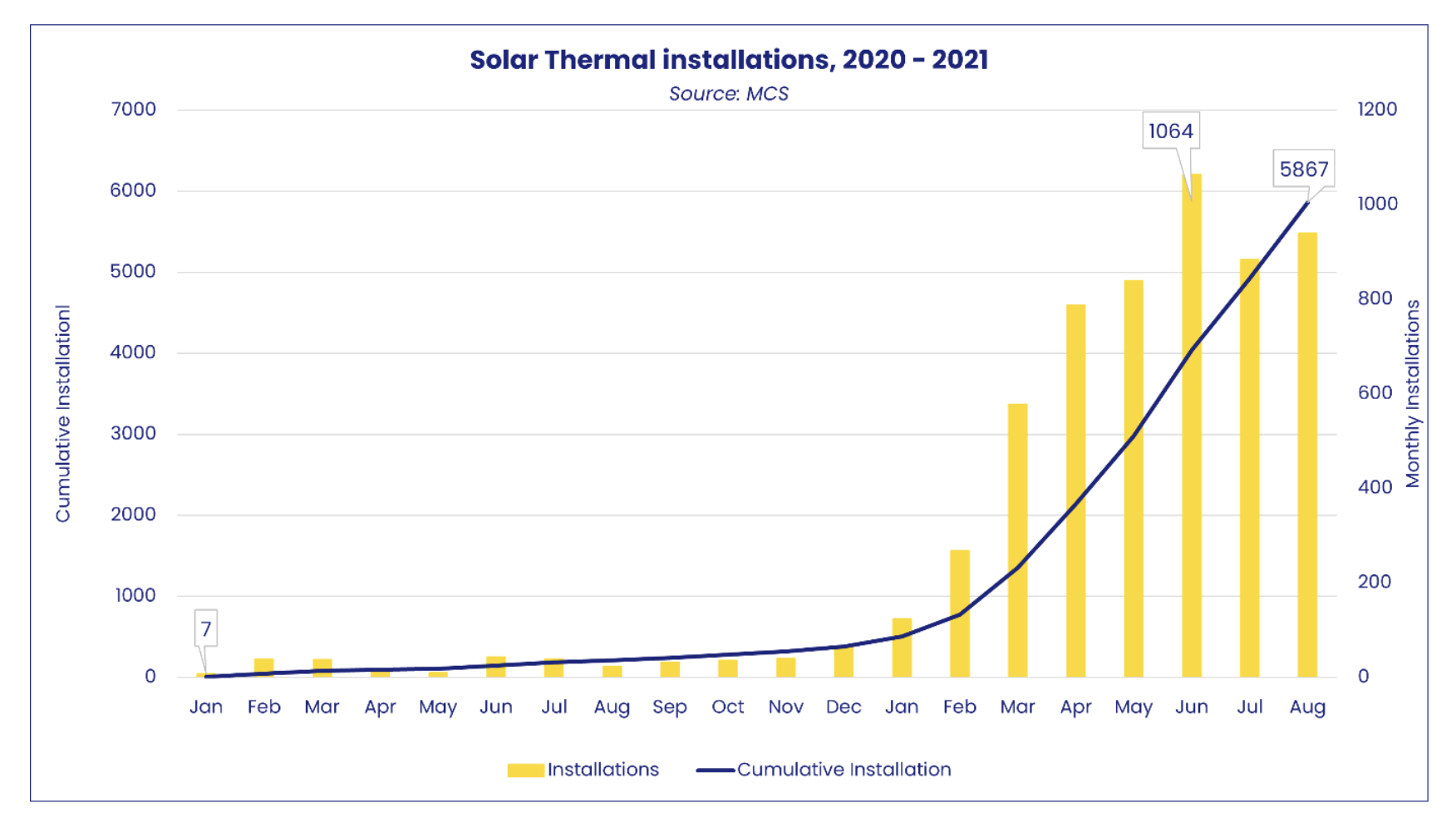05 October 2021

Solar thermal is a powerful green addition to a building’s heat supply, generating space and water heating using the sun’s energy. The technology can help the UK with decarbonisation by supporting the move to low carbon heat methods; solar thermal is a fully zero carbon heating technology, compared with electric heating, which also needs 100% renewable electricity (for example, from onsite generation such as solar PV) to achieve the same benefit.
This is of major importance, given that space, water and industrial heating together account for more than a third of UK greenhouse gas emissions. Onsite heat generation technologies such as solar thermal also help reduce the cost of bills for homeowners and occupiers. Decreasing the reliance of homes and buildings on imported energy, such as electricity and gas, is particularly relevant in the context of the increases in gas prices, which have been widely discussed in the last few weeks.
The technology is particularly popular at the moment: the graph above shows the massive increase in solar thermal installations which have taken place in the UK in 2021. This is positive: the more solar thermal systems installed, the less electricity and gas is required to generate heat in buildings. But where has this growth come from? One obvious source is government support. Many of these systems were installed under the Government incentive scheme, the Green Homes Grant (GHG). Homeowners who applied for the scheme were able to secure up to two-thirds of the costs of a green home installation (up to £5,000), or more for low-income households.
The popularity of solar thermal is clear: according to government statistics, solar thermal installations accounted for 60% of all low-carbon heat measures installed under the scheme – more than any other low-carbon technology, including heat pumps – and 15% of total installations before the scheme was closed – early – on 31 March 2021. This closure was a source of major frustration for industry, given the popularity of the technology that the GHG figures show: the scheme contributed to the fact that in the first eight months of 2021, there were 5,485 solar thermal installations – more than 14 times as many as the total number in 2020.
Consumer demand for low-carbon onsite heating is clear, and the solar thermal industry can help meet it. But there needs to be a stable policy environment for companies to take decisions and plan their business. This is why Solar Energy UK has called on the government to ensure that any future grant scheme is designed for the long term – at least several years – and is developed in consultation with the solar energy industry and others involved in the domestic retrofit supply chain, including the construction, roofing and low-
One potential mechanism to support the deployment of solar thermal is the Clean Heat Grant (CHG), which is due to launch in April 2022 and will deliver upfront grants to help homeowners pay for low carbon heating technologies. Designed to replace the Renewable Heat Incentive (RHI), the government is proposing to provide up to £7,000 in grants to homeowners to support installations. However, solar thermal is not currently reported to be one of the technologies that will be eligible for the grant. Solar Energy UK is pressing the government to ensure that it is included.
This risks missing a major opportunity to support the deployment of a technology which should be vital to the UK’s decarbonisation efforts. As Grant Feasey from Solar Energy UK member AES Solar said: “Solar Thermal is proven to be an affordable and effective option to reduce the carbon footprint and running costs of new and existing buildings in many cases. It also tackles an energy requirement that is essential and can’t be insulated away – hot water.”
“We have seen through the Green Homes Grant that it is a popular measure with the public, especially for existing homes. A continuation of similar up-front support in combination with increased awareness and effective policy for new build and existing homes can see the growth of the solar thermal supply chain in the UK, enabling it to decarbonise a significant portion of our heat energy needs.”
By Ben Milne, Policy Research Assistant at Solar Energy UK.